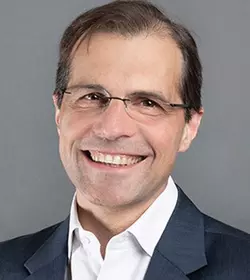In an ever-changing world, the energy transition is a significant challenge for all industries, and preparation is essential for a smooth process. The Romanian market usually follows European trends and it is expected that this will happen now, so the measures that should be implemented are similar to those in the EU member states.
 The expression “energy transition” is increasingly used, and in the electricity industry the transition from fossil fuels to renewable sources is inevitable. This major change comes with important challenges, but also with major opportunities for companies in the field.
The expression “energy transition” is increasingly used, and in the electricity industry the transition from fossil fuels to renewable sources is inevitable. This major change comes with important challenges, but also with major opportunities for companies in the field.
In the Romanian market, perhaps more than others, experience and expertise will prove essential in ensuring a smooth transition to renewable energy sources, and Eaton has taken important steps in this direction in recent years, offering its partners solutions for the integration of advanced technologies in both new and existing projects.
Below are the main trends that should also be taken into account by companies on the Romanian market, according to an analysis presented by Cyrille Brisson, vice president of Sales and Marketing EMEA Eaton.
Flexibility
Open and flexible thinking is essential to effectively manage the energy transition. The implementation of new technologies, from energy management systems to charging stations for electric cars, requires an innovative approach.
Both distributors of electrical materials and equipment, as well as installers and system integrators, will have an important role in ensuring the effective integration of these technologies in buildings, and cooperation in this transition stage will be decisive for success.
Information is key
We live in the information age, and quick access to relevant details can make the difference between a successful project and one that doesn’t have the anticipated results. That is why there is a need for a change in the perspective of the players in the industry, who will have to work together to reduce the information gaps.
As the transition to alternative energy sources accelerates, the regulatory changes that govern the market are also changing, often dramatically, and companies need to keep up with them. In the European Union, the Fit-for-55 legislative package is being implemented, which aims at a 55% reduction in greenhouse gas emissions by 2030 in parallel with the application of post-Covid economic recovery programs. In this context, building owners need to quickly find solutions to reduce energy consumption and emissions, and the support provided by manufacturers and retailers can prove extremely valuable.
Integrating energy-saving technologies into buildings will lead to significant savings, and the electrical industry plays a key role in providing products and solutions for inserting new functionality, such as solar panels, charging stations for electric vehicles or storage systems of energy.
Prosumers are becoming increasingly relevant
As consumers become more and more aware of generating their own energy, the Romanian market is adapting to a new type of customer – “prosumers” – those who produce and consume electricity. If until now residential homes or business locations were energy consumers, the development and spread of alternative energy production solutions have led to an increase in the number of prosumers.
And as prosumers become more familiar with power generation methods, they will be more willing to monetize the electricity they produce by distributing it to the grid and making available storage capacity, including electric vehicle batteries.
To take advantage of all these resources, prosumers will need new products and services. A whole range of products, from energy management devices to protection devices and alarm systems, will be available in the market. Flexibility in consumer demand is undoubtedly a huge opportunity for the industry.
Decentralization
Only by efficiently storing and managing renewable energy close to the point of use and effectively transitioning to an integrated grid can we achieve the continuous flow of energy so important for years to come.
Eaton has developed an entire strategy, called “Buildings as a Grid”, to bring together the power needs of buildings and electric vehicles with local sources of energy generation. With this kind of approach, the building becomes an energy distribution point to take advantage of the new energy shift, to manage the electrical infrastructure more easily and to prepare for future energy demands. This kind of integrated approach to needs and resources, tailored to each community, will define the 21st century and the products and services the electric industry provides to customers.
